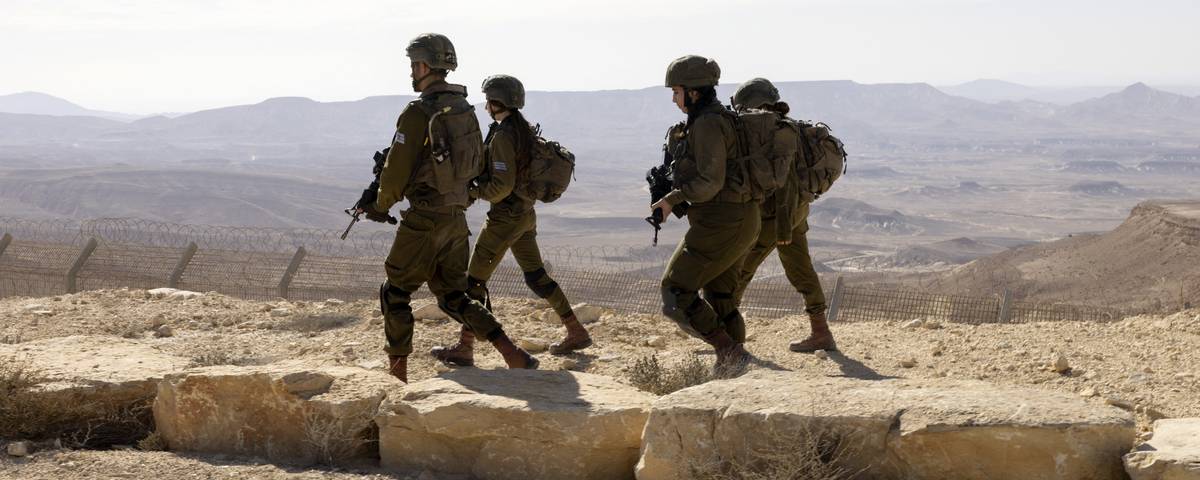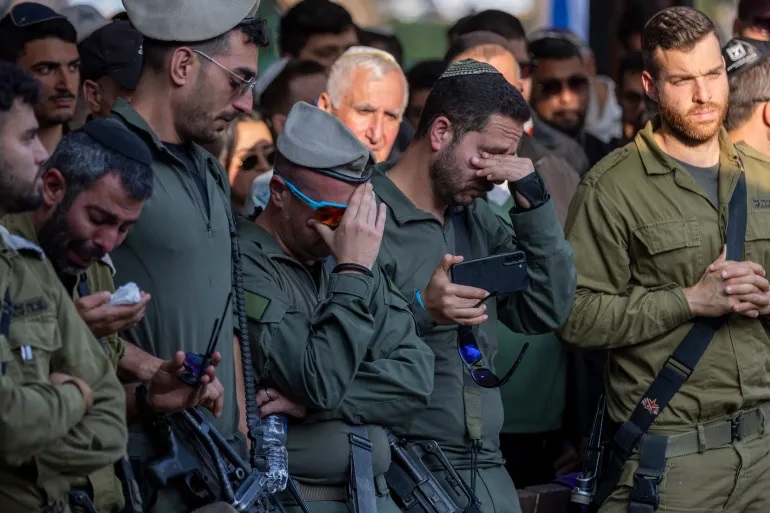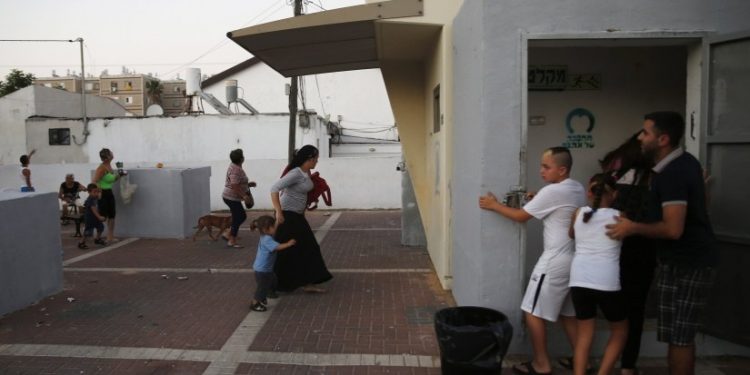
SANA'A August 06. 2024 (Saba) - In the face of the Zionist enemy's superiority and the psychological warfare waged by its supporters, the resistance has succeeded in securing a significant and deserved victory in its psychological battle. This success stems from a firm belief in the justice of their cause, a foundation of knowledge, and unwavering determination.
As the Zionist enemy continues its brutal war of extermination against the resilient Gaza Strip, the resistance is simultaneously engaged in another fierce battle: the psychological war against the Zionist enemy, its agents, and supporters. These adversaries include those who have chosen to side with the enemy, whether for personal gain, fear of loss, or sheer animosity.
The Zionist enemy has attempted to tarnish the image of the Hamas Movement and its fighters by branding them as terrorists and ISIS members, especially following the "Al-Aqsa Flood" incident. This propaganda campaign is supported by influential figures, including US President Joe Biden and various European leaders, along with biased Western media outlets lacking professional integrity.
In an effort to displace Palestinians from its "areas of operations," the Zionist enemy has resorted to psychological tactics, distributing leaflets and using social media to instill fear. Some allied countries have also supported these media maneuvers, promoting the concept of "safe zones," which ultimately serve as a means of displacement.
The resistance, however, actively counters the Zionist media narrative, emphasizing the strategic dangers of displacement and the manipulative nature of these calls. Their efforts are supported by allied forces and strategic communications.
The falsehoods propagated by the Zionist enemy have been debunked through various means, including the humane treatment of Zionist prisoners by Al-Qassam fighters, as witnessed by the world during the previous prisoner exchange deal. The testimonies of female prisoners about their respectful treatment further discredit the enemy's narrative, leading to restrictions on media interactions with Zionist prisoners and their families.
Activists, intellectuals, and ordinary citizens play a crucial role in combating the Zionist enemy's psychological warfare. They actively challenge the misleading propaganda that aims to undermine the people's awareness and conviction in the justice of their cause.
For over two decades, the Zionist enemy's army has maintained a military unit dedicated to psychological warfare, conducting campaigns to influence Palestinian public opinion through propaganda and psychological tactics.
The Zionist newspaper Haaretz has revealed the existence of a specialized unit within the Zionist military dedicated to psychological warfare. This unit leverages both Zionist and international media to propagate its narrative and reports. Although it has experienced periods of inactivity, it is reactivated as needed, particularly during times of conflict, and remains operational today.
This unit's primary objective is to influence the morale and thoughts of the Palestinian population. It does so by promoting the myth of the "invincible army," showcasing the technological superiority of the Zionist entity, spreading misleading information about the resistance, and justifying Zionist military actions under the guise of combating terrorism.
The Zionist government's propaganda machine continues to disseminate its narrative, characterized by arrogance and hubris. In a stark example, following the treacherous attack that resulted in the martyrdom of leader Ismail Haniyeh, the Zionist government accused Hamas of refusing to negotiate regarding the hostages. This accusation, described by Egyptian writer Fahmi Huwaidi as arrogance and impudence, underscores the Zionist government's contempt and disdain for the Arab world.
In this context, numerous Arab media outlets have quickly aligned themselves with the Zionist narrative, targeting the resistance and undermining its patriotism. They have attacked its leaders, questioned their loyalty, and exploited the public’s suffering to further their own agendas, which ultimately benefit the Zionist enemy.
Despite this, activists committed to defending justice have stepped up to counteract this influence, supporting the fighters who are sacrificing themselves for their homeland and national dignity.
Writer Hosni Muhammad Nasr, in his article titled "Normalization Media... and the War on Gaza," critiques the performance of Arab media during the Zionist assault on Gaza. He argues that media in many Arab countries adhere more to the interests of their regimes than to the needs and interests of their people.
Nasr points out that, aside from the countries supporting resistance and opposing normalization with the occupying entity, the dominant media trend in other Arab nations supports the occupier and seeks to undermine all forms of resistance. This trend reflects the media of normalizing countries or those on the path to normalization.
He explains that the "normalization media" has attempted to blame the Palestinian resistance in Gaza for the war's consequences, portraying it as a result of their actions on October 7th. This media thus acts as an extension of Zionist propaganda, perpetuating the ongoing war without an end in sight.
Contrasting with this Zionist narrative, the resistance has maintained its own discourse. Professor Imad Abdul Latif, an expert in rhetoric and analysis of Palestinian discourse, notes that the Palestinian resistance has effectively countered the Zionist discourse supported by the West. He likens the official spokesperson of Al-Qassam Brigades, Abu Obeida, to the symbolic power of weapons like the "Ghoul" rifle and the "Yassin" shells
In an interview with Kuwaiti magazine Al-Mujtama, Abdul Latif emphasizes that resisting occupation is a multifaceted struggle, occurring not only in physical confrontations but also on television screens, social media, and in diplomatic negotiations.
He emphasizes that the primary objective of any occupation is to break the spirit and mind of its targets, leading them to surrender, die, or flee. To achieve this, the occupier employs both physical force—through rifles, bombs, and missiles—and psychological tactics, using propaganda and imagery to undermine the will of the people.
Abdul Latif notes that the resistance has achieved a significant rhetorical victory, which is as crucial as its military resilience on the battlefield. The resistance’s discourse has successfully countered the Zionist narrative, which is backed by Western powers.
He highlights that this victory was marked by debunking the claims that the resistance is merely terrorism and exposing the myth of the invincible Zionist army, revealing the true nature of the Zionist soldier as cowardly, incompetent, racist, and brutal.
The Al-Majd security website, associated with the Palestinian resistance, reported that despite biased media, the Zionist entity has lost its psychological war against the Palestinians both locally and globally. The website praised the moral victory achieved by the resistance.
The statement from the website also pointed out that the Zionist entity's tactic of invoking "anti-Semitism" is an attempt to reframe itself as the victim, accusing the global community, including the United Nations, the International Red Cross, and humanitarian organizations, of bias and sympathy towards the Palestinians.
Additionally, the statement criticized the Zionist entity for using the historical trauma of Nazi persecution to deflect attention from its own ongoing oppression of the Palestinians, which has lasted for nearly a century. The repetition of Zionist lies, such as claims of atrocities like beheading children or burning them alive, has led to widespread skepticism and fatigue regarding Zionist propaganda.
According to the Oxford Encyclopedia of American Military and Diplomatic History and the Encyclopedia of Intelligence and Counterintelligence, psychological warfare is a critical element in determining the outcome of conflicts. It aims to achieve military goals by influencing the enemy's mindset, often through misinformation and psychological manipulation to weaken morale without resorting to direct violence.
Psychological warfare has been a strategy in warfare since its inception, a concept famously articulated by Chinese military strategist Sun Tzu in his fourth-century BC work, "The Art of War," which states: "Fighting and winning all your battles is not the highest degree of excellence; the highest excellence is to break the enemy's resistance without fighting."
The psychological impact on the Zionists has been severe, with reports indicating that the mental health system is overwhelmed by the number of patients. Estimates suggest that between 20% and 30% of Zionists will suffer from psychological trauma for the rest of their lives, with no hope of fully recovering from these symptoms.
The psychological impact of the ongoing conflict on Zionist society and its military, which began on October 7, 2023, reveals a troubling and complex situation. The occupying entity is experiencing profound and unprecedented psychological distress affecting all sectors of society, particularly those soldiers who returned from combat in Gaza. Many of these soldiers are grappling with long-term psychological issues stemming from their experiences.
The Zionist website "The Marker" described the influx of individuals seeking psychiatric care as a "tsunami," highlighting the surge in mental health problems such as eating disorders since the onset of the war.
Mental health reports from the occupying entity show a significant rise in depression, shock, and anxiety among its population. There has been a notable increase in the demand for sleep aids and sedatives, with many experiencing recurring nightmares and distressing dreams involving dark, confined spaces, suffocation, or threats from masked, armed individuals.
The situation is similarly dire among the military ranks. Statistics up to the second month of the conflict reveal that 9,000 soldiers required psychological treatment, including 1,500 who needed ongoing therapy. Approximately a quarter of the soldiers were unable to return to combat due to their psychological conditions. In response, the army has deployed 838 psychological therapists to support soldiers in the field.
H.H
As the Zionist enemy continues its brutal war of extermination against the resilient Gaza Strip, the resistance is simultaneously engaged in another fierce battle: the psychological war against the Zionist enemy, its agents, and supporters. These adversaries include those who have chosen to side with the enemy, whether for personal gain, fear of loss, or sheer animosity.
The Zionist enemy has attempted to tarnish the image of the Hamas Movement and its fighters by branding them as terrorists and ISIS members, especially following the "Al-Aqsa Flood" incident. This propaganda campaign is supported by influential figures, including US President Joe Biden and various European leaders, along with biased Western media outlets lacking professional integrity.
In an effort to displace Palestinians from its "areas of operations," the Zionist enemy has resorted to psychological tactics, distributing leaflets and using social media to instill fear. Some allied countries have also supported these media maneuvers, promoting the concept of "safe zones," which ultimately serve as a means of displacement.
The resistance, however, actively counters the Zionist media narrative, emphasizing the strategic dangers of displacement and the manipulative nature of these calls. Their efforts are supported by allied forces and strategic communications.
The falsehoods propagated by the Zionist enemy have been debunked through various means, including the humane treatment of Zionist prisoners by Al-Qassam fighters, as witnessed by the world during the previous prisoner exchange deal. The testimonies of female prisoners about their respectful treatment further discredit the enemy's narrative, leading to restrictions on media interactions with Zionist prisoners and their families.
Activists, intellectuals, and ordinary citizens play a crucial role in combating the Zionist enemy's psychological warfare. They actively challenge the misleading propaganda that aims to undermine the people's awareness and conviction in the justice of their cause.
For over two decades, the Zionist enemy's army has maintained a military unit dedicated to psychological warfare, conducting campaigns to influence Palestinian public opinion through propaganda and psychological tactics.
The Zionist newspaper Haaretz has revealed the existence of a specialized unit within the Zionist military dedicated to psychological warfare. This unit leverages both Zionist and international media to propagate its narrative and reports. Although it has experienced periods of inactivity, it is reactivated as needed, particularly during times of conflict, and remains operational today.
This unit's primary objective is to influence the morale and thoughts of the Palestinian population. It does so by promoting the myth of the "invincible army," showcasing the technological superiority of the Zionist entity, spreading misleading information about the resistance, and justifying Zionist military actions under the guise of combating terrorism.
The Zionist government's propaganda machine continues to disseminate its narrative, characterized by arrogance and hubris. In a stark example, following the treacherous attack that resulted in the martyrdom of leader Ismail Haniyeh, the Zionist government accused Hamas of refusing to negotiate regarding the hostages. This accusation, described by Egyptian writer Fahmi Huwaidi as arrogance and impudence, underscores the Zionist government's contempt and disdain for the Arab world.
In this context, numerous Arab media outlets have quickly aligned themselves with the Zionist narrative, targeting the resistance and undermining its patriotism. They have attacked its leaders, questioned their loyalty, and exploited the public’s suffering to further their own agendas, which ultimately benefit the Zionist enemy.
Despite this, activists committed to defending justice have stepped up to counteract this influence, supporting the fighters who are sacrificing themselves for their homeland and national dignity.
Writer Hosni Muhammad Nasr, in his article titled "Normalization Media... and the War on Gaza," critiques the performance of Arab media during the Zionist assault on Gaza. He argues that media in many Arab countries adhere more to the interests of their regimes than to the needs and interests of their people.
Nasr points out that, aside from the countries supporting resistance and opposing normalization with the occupying entity, the dominant media trend in other Arab nations supports the occupier and seeks to undermine all forms of resistance. This trend reflects the media of normalizing countries or those on the path to normalization.
He explains that the "normalization media" has attempted to blame the Palestinian resistance in Gaza for the war's consequences, portraying it as a result of their actions on October 7th. This media thus acts as an extension of Zionist propaganda, perpetuating the ongoing war without an end in sight.
Contrasting with this Zionist narrative, the resistance has maintained its own discourse. Professor Imad Abdul Latif, an expert in rhetoric and analysis of Palestinian discourse, notes that the Palestinian resistance has effectively countered the Zionist discourse supported by the West. He likens the official spokesperson of Al-Qassam Brigades, Abu Obeida, to the symbolic power of weapons like the "Ghoul" rifle and the "Yassin" shells
In an interview with Kuwaiti magazine Al-Mujtama, Abdul Latif emphasizes that resisting occupation is a multifaceted struggle, occurring not only in physical confrontations but also on television screens, social media, and in diplomatic negotiations.
He emphasizes that the primary objective of any occupation is to break the spirit and mind of its targets, leading them to surrender, die, or flee. To achieve this, the occupier employs both physical force—through rifles, bombs, and missiles—and psychological tactics, using propaganda and imagery to undermine the will of the people.
Abdul Latif notes that the resistance has achieved a significant rhetorical victory, which is as crucial as its military resilience on the battlefield. The resistance’s discourse has successfully countered the Zionist narrative, which is backed by Western powers.
He highlights that this victory was marked by debunking the claims that the resistance is merely terrorism and exposing the myth of the invincible Zionist army, revealing the true nature of the Zionist soldier as cowardly, incompetent, racist, and brutal.
The Al-Majd security website, associated with the Palestinian resistance, reported that despite biased media, the Zionist entity has lost its psychological war against the Palestinians both locally and globally. The website praised the moral victory achieved by the resistance.
The statement from the website also pointed out that the Zionist entity's tactic of invoking "anti-Semitism" is an attempt to reframe itself as the victim, accusing the global community, including the United Nations, the International Red Cross, and humanitarian organizations, of bias and sympathy towards the Palestinians.
Additionally, the statement criticized the Zionist entity for using the historical trauma of Nazi persecution to deflect attention from its own ongoing oppression of the Palestinians, which has lasted for nearly a century. The repetition of Zionist lies, such as claims of atrocities like beheading children or burning them alive, has led to widespread skepticism and fatigue regarding Zionist propaganda.
According to the Oxford Encyclopedia of American Military and Diplomatic History and the Encyclopedia of Intelligence and Counterintelligence, psychological warfare is a critical element in determining the outcome of conflicts. It aims to achieve military goals by influencing the enemy's mindset, often through misinformation and psychological manipulation to weaken morale without resorting to direct violence.
Psychological warfare has been a strategy in warfare since its inception, a concept famously articulated by Chinese military strategist Sun Tzu in his fourth-century BC work, "The Art of War," which states: "Fighting and winning all your battles is not the highest degree of excellence; the highest excellence is to break the enemy's resistance without fighting."
The psychological impact on the Zionists has been severe, with reports indicating that the mental health system is overwhelmed by the number of patients. Estimates suggest that between 20% and 30% of Zionists will suffer from psychological trauma for the rest of their lives, with no hope of fully recovering from these symptoms.
The psychological impact of the ongoing conflict on Zionist society and its military, which began on October 7, 2023, reveals a troubling and complex situation. The occupying entity is experiencing profound and unprecedented psychological distress affecting all sectors of society, particularly those soldiers who returned from combat in Gaza. Many of these soldiers are grappling with long-term psychological issues stemming from their experiences.
The Zionist website "The Marker" described the influx of individuals seeking psychiatric care as a "tsunami," highlighting the surge in mental health problems such as eating disorders since the onset of the war.
Mental health reports from the occupying entity show a significant rise in depression, shock, and anxiety among its population. There has been a notable increase in the demand for sleep aids and sedatives, with many experiencing recurring nightmares and distressing dreams involving dark, confined spaces, suffocation, or threats from masked, armed individuals.
The situation is similarly dire among the military ranks. Statistics up to the second month of the conflict reveal that 9,000 soldiers required psychological treatment, including 1,500 who needed ongoing therapy. Approximately a quarter of the soldiers were unable to return to combat due to their psychological conditions. In response, the army has deployed 838 psychological therapists to support soldiers in the field.
H.H
resource : Saba


